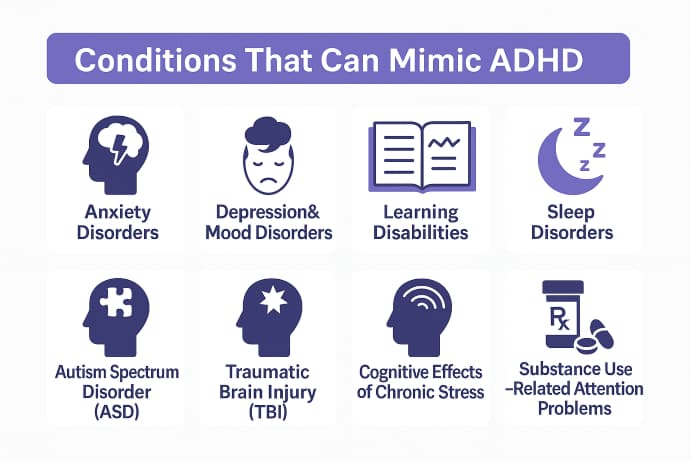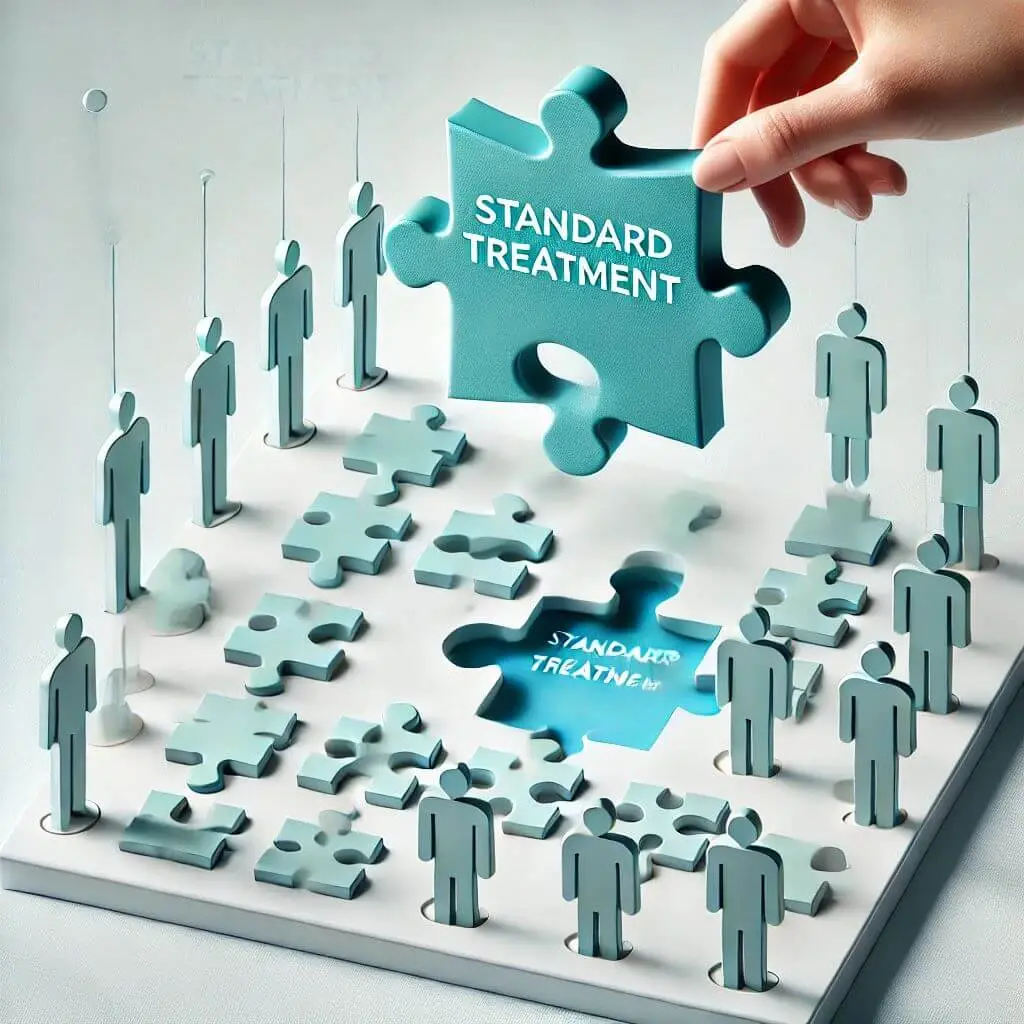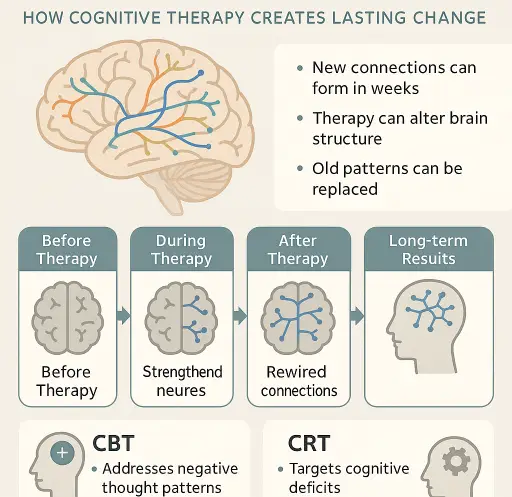Private ADHD Testing in NYC

Fast, Accurate Answers with Dr. Iospa Psychiatry Consulting Group Struggling to focus, stay organized, or manage distractions? You’re not alone. ADHD affects children, teens, adults, and older professionals, and in the fast-paced world of New York City, it often goes undiagnosed. At Dr. Iospa Psychiatry Consulting Group, we provide private ADHD testing designed to deliver clear answers and personalized treatment plans. As a result, you gain the tools you need to take control of your well-being. Why Choose Private ADHD Testing in NYC If you often feel distracted, overwhelmed, or forgetful, ADHD may be a factor. Left unrecognized, it can affect your career, relationships, education, and mental health. However, the right evaluation can give you clarity and a plan to move forward with confidence. Here’s why many New Yorkers choose Dr. Iospa Psychiatry Consulting Group in Midtown Manhattan for private ADHD testing: Comprehensive, evidence-based evaluations led by experienced clinicians Confidential results handled securely to protect your privacy Fast, streamlined process with priority scheduling for self-pay clients Personalized treatment planning, including therapy, medication, and accommodations Unlike quick online quizzes or limited screenings, our process uses clinically validated tools and in-depth assessments. As a result, you receive an accurate diagnosis and a clear, actionable plan. In some cases, if your ADHD testing results are inconclusive, we may recommend a comprehensive neuropsychological evaluation. This allows us to confirm or rule out other conditions that can mimic ADHD, including: Anxiety disorders Depression and mood disorders Learning disabilities (dyslexia, dyscalculia, etc.) Sleep disorders Autism spectrum disorder (ASD) Traumatic brain injury (TBI) Cognitive effects of chronic stress Substance use–related attention problems Your results can also support school accommodations to improve academic performance, guide medication management with our psychiatrists, and inform targeted cognitive therapies designed to strengthen focus, organization, and emotional regulation. What’s Included in Private ADHD Testing Our ADHD testing process is thorough, structured, and designed around your needs: Detailed clinical interview and personal history review Standardized ADHD testing for attention, memory, and executive function Feedback session explaining strengths, weaknesses, and next steps Tailored treatment recommendations, including: Cognitive-behavioral therapy (CBT) Medication management with our psychiatrists School or workplace accommodations Flexible options: in-person Midtown NYC testing or secure online consultations Because we combine testing with personalized recommendations, you leave with clear answers and a plan instead of uncertainty. Who Benefits from ADHD Testing ADHD affects more than teens and college students. Our testing supports all age groups and life stages: Children experiencing challenges with attention or school performance Teens & young adults facing academic or social stressors Working professionals managing deadlines, meetings, and productivity demands Parents balancing home responsibilities, work, and family life Older adults struggling with memory, organization, or focus For example, an accurate diagnosis often helps professionals improve productivity, students access accommodations, and parents manage household demands more effectively. What Happens After Testing Your ADHD evaluation is only the first step. Once testing is complete, we help you turn insights into action: School accommodations — Reports can support IEPs, 504 plans, and classroom flexibility Medication management — Our psychiatrists customize treatment plans for your needs Cognitive therapies — Improve focus, organization, and emotional regulation Ongoing support — We monitor progress and adjust your treatment as needed Because our approach integrates testing and personalized care, you receive comprehensive support every step of the way. Book Your Private ADHD Testing in NYC Stop guessing. Start understanding. At Dr. Iospa Psychiatry Consulting Group, we provide expert, discreet ADHD evaluations in the heart of Midtown Manhattan — helping you take the next step toward clarity and control. In-person testing at our Convenient Midtown location Virtual consultations Immediate scheduling Take control of your focus, productivity, and well-being today. Contact Us to Schedule Your Private ADHD Evaluation Take the First Step Making the call can feel overwhelming. Your cognitive health deserves attention. Your peace of mind deserves answers. And your future deserves a plan. Contact US
Why Depression Treatment Fails 40% of Patients?

Why Depression Treatment Fails 40% of Patients? Depression treatment failures affect nearly half of all people seeking help. Despite taking antidepressants, going to therapy, and following your doctor’s advice, you might still feel stuck. If you’re dealing with treatment-resistant depression (TRD) or failed depression therapy, you’re not alone—and it’s not your fault. After treating over 1,000 patients in 15 years, I’ve learned something important: when depression treatment doesn’t work, it’s usually not because you’re “unfixable.” It’s because you need a different approach. Why Finding the Right Treatment Isn’t Like Solving a Math Problem Here’s something your doctor might not have explained: psychiatric medication isn’t an exact science like math or physics. We can’t plug your symptoms into a formula and get the perfect answer. Your brain chemistry is unique. What works for your friend, your coworker, or even your family member might not work for you. This means finding the right treatment often involves: Trial and adjustment: Testing different medications to see what helps Dosage fine-tuning: Starting low and adjusting until you find what works Switching approaches: Sometimes the first (or second, or third) medication isn’t the one Combining treatments: Medication plus therapy often works better than either alone This process can feel frustrating, but it’s normal. You’re not doing anything wrong if it takes time to find what helps you. The Real Reason Standard Treatment Doesn’t Always Work Most depression treatment follows the same pattern for everyone: diagnose symptoms, prescribe antidepressants, recommend therapy. It helps about 60% of people. But what about everyone else? I’ve noticed that people whose depression doesn’t respond to standard treatment often have something else going on: Young adults dealing with career pressure and perfectionism need different help than someone going through a divorce. Older adults facing health changes and loss need different support than someone with work stress. Same depression symptoms, completely different root causes. What Real Recovery Looks Like Effective depression treatment addresses your whole situation, not just your symptoms. This might include: Medical evaluation: Checking for thyroid problems, vitamin deficiencies, or other health issues that can cause depression The right therapy approach: Anxiety management for perfectionists, grief counseling for loss, or life transition support for major changes Medication when it helps: Sometimes antidepressants are crucial, sometimes they’re not the main solution Lifestyle support: Sleep, exercise, nutrition, and social connection all affect your mood Signs You Need a Different Approach Consider asking your doctor about other options if: You’ve tried 2-3 medications without much improvement Therapy helps temporarily but problems keep coming back You feel like you’re “doing everything right” but still struggling Your depression seems connected to specific life situations You function well at work but feel miserable inside You Have More Options Than You Think If standard treatment hasn’t worked for you, don’t give up. Depression affects everyone differently, and treatment needs to match your specific situation. Different types of therapy exist for different problems. Various medications work through different pathways in your brain. Integrative approaches combine medical care with counseling and lifestyle changes. The key is finding providers who understand that cookie-cutter treatment doesn’t work for everyone. What’s Next for You Remember: needing to try different treatments doesn’t mean you’re treatment-resistant. It means you’re human, with a unique brain and unique circumstances. Disclaimer: This article is for educational purposes only and is not a substitute for professional medical advice, diagnosis, or treatment. If you are experiencing severe depression or thoughts of self-harm, call 988 in the U.S. or go to your nearest emergency room. Always seek the advice of your physician or qualified mental health provider with any questions you may have regarding your condition. Disclaimer: The information provided in this guide is for educational purposes only and should not be considered a substitute for professional medical advice, diagnosis, or treatment. Consult with your psychiatrist regarding any specific medication management concerns or questions you may have. Each individual’s situation is unique, and your doctor can provide personalized recommendations based on a comprehensive evaluation of your medical history, symptoms, and needs. Always follow the guidance and instructions provided by your psychiatrist regarding medication management. Have you struggled to find depression treatment that works? What questions do you have about finding the right approach? If you’re in New York City our Midtown team can help you explore personalized treatment that goes beyond cookie-cutter care. Click Here
CBT vs. CRT: Cognitive Behavioral Therapy and Cognitive Remediation Therapy in Midtown NYC

CBT vs. CRT: How Cognitive Therapies Improve Thinking, Mood, and Brain Function Cognitive health is essential for daily life, especially in a fast-paced city like New York. Whether you’re dealing with anxiety, memory problems, ADHD, or brain fog after COVID-19, proven cognitive therapies can help. Two of the most effective approaches are Cognitive Behavioral Therapy (CBT) and Cognitive Remediation Therapy (CRT). Both play a vital role in improving thinking, mood, and brain function, but they work in different ways. Understanding the differences between Cognitive Behavioral Therapy in Midtown, NYC, and Cognitive Remediation Therapy in New York City can help you choose the right path to better mental and cognitive health. What Is Cognitive Behavioral Therapy (CBT)? Cognitive Behavioral Therapy, or CBT, is one of the most widely used and researched forms of CBT In Midtown NYC, CBT is designed to be practical and structured. Individuals work with a clinical psychologist to learn coping skills, challenge negative thinking patterns, and gradually confront situations that may have previously felt overwhelming. For many, CBT leads to lasting improvements in emotional resilience and daily functioning. What Is Cognitive Remediation Therapy (CRT)? Cognitive Remediation Therapy (CRT) focuses on improving the brain’s cognitive functioning through targeted exercises. Unlike CBT, which addresses emotions and behavior, CRT focuses on strengthening areas such as memory, attention, and executive functioning. This approach is grounded in the science of neuroplasticity, the brain’s remarkable ability to adapt and reorganize. Our team offers Cognitive Remediation Therapy in New York City to support individuals facing cognitive challenges that impact their work, school, or daily life. CRT is especially beneficial for: Anxiety-related cognitive fog ADHD and attention difficulties Mild Cognitive Impairment (MCI) Chemobrain following cancer treatment Brain fog associated with Long COVID Cognitive Remediation Therapy uses structured, evidence-based exercises, often delivered by a neuropsychologist, to target specific cognitive skills. These interventions complement therapies like CBT by improving the brain’s ability to focus, process information, and retain memory — essential for managing both cognitive and emotional symptoms. A Collaborative Team of Specialists At the heart of effective care is a team-based approach. The practice brings together experienced clinical psychologists, neuropsychologists, and psychiatrists who collaborate to address both cognitive and emotional health. Clinical psychologists focus on providing therapies such as Cognitive Behavioral Therapy in Midtown NYC, helping individuals develop tools for managing anxiety, depression, and other emotional concerns. Neuropsychologists play a vital role in assessing cognitive functioning and leading interventions, such as Cognitive Remediation Therapy in New York City, which targets memory, attention, and processing skills. Together, this integrated team ensures that treatment is tailored to each individual’s unique needs, offering comprehensive support for cognitive and emotional well-being. The Science of Neuroplasticity and Cognitive Therapies Both CBT and Cognitive Remediation Therapy in New York City are supported by the science of neuroplasticity, the brain’s ability to form new neural connections and adapt throughout life. Through cognitive exercises, skill-building, and structured therapy, the brain can strengthen areas that may have been impacted by anxiety, ADHD, MCI, chemobrain, or brain fog from Long COVID. By working with a clinical psychologist or neuropsychologist, individuals can leverage neuroplasticity to enhance cognitive performance and improve emotional resilience. Whether through Cognitive Behavioral Therapy in Midtown NYC or Cognitive Remediation Therapy in New York City, the goal is to create lasting, meaningful changes in brain function and overall quality of life. CBT vs. CRT: Key Differences at a Glance Feature CBT: Cognitive Behavioral Therapy CRT: Cognitive Remediation Therapy Focus Thoughts, emotions, behaviors Cognitive functioning (memory, attention, processing) Goal Reduce emotional distress, build coping skills Improve cognitive skills through neuroplasticity Method Talk therapy, practical exercises Computer tasks, structured cognitive exercises Common Uses Anxiety, depression, stress, insomnia ADHD, MCI, Chemobrain, Brain Fog, Long COVID Practitioner Clinical Psychologist, Therapist Neuropsychologist, Cognitive Specialist Finding the Right Cognitive Support in New York City Cognitive therapies are not one-size-fits-all. Many individuals benefit from a combined approach, utilizing both Cognitive Behavioral Therapy in Midtown, NYC, and Cognitive Remediation Therapy in New York City to address emotional and cognitive challenges simultaneously. For those struggling with anxiety that clouds focus, lingering brain fog after COVID, or cognitive difficulties due to MCI, ADHD, or chemobrain, the right intervention can make a significant difference. With the support of a clinical psychologist, neuropsychologist, and psychiatrist, a personalized treatment plan can help improve cognitive functioning and emotional well-being. Strengthening the Mind Through Cognitive Therapies The human brain has a powerful capacity for change, thanks to neuroplasticity. Through approaches such as CBT and Cognitive Remediation Therapy in New York City, individuals can build resilience, sharpen their thinking, and regain clarity. For those seeking expert care in Cognitive Behavioral Therapy, specialized Cognitive Remediation Therapy, or a comprehensive evaluation with a clinical psychologist or neuropsychologist, an experienced team is available to guide the way.
